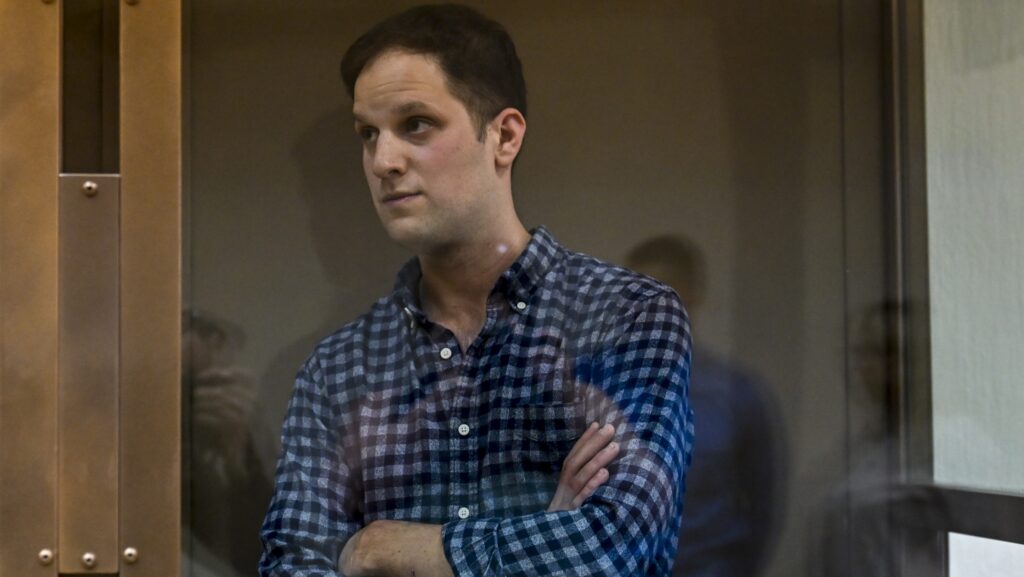(JR) — A Russian court extended the pretrial detention of Wall Street Journal reporter Evan Gershkovich until at least Aug. 30.
Gershkovich, 31, the American son of Jewish refugees from the Soviet Union, was arrested on an allegation of espionage on March 29 during a reporting trip to the city of Yekaterinburg — claims that he, the United States government and the Wall Street Journal deny. His pretrial detention was initially scheduled to end on May 29 before it was extended on Tuesday.
Legal experts and American diplomats expected that Gershkovich’s detention could last for months, according to the Wall Street Journal.
Tuesday’s court hearing was not announced in advance and was held behind closed doors. Russian authorities have not provided evidence to support their charges that Gershkovich allegedly obtained classified information on “the activities of one of the enterprises of the Russian military-industrial complex.”
The U.S. government has declared Gershkovich to be wrongfully detained and demanded his immediate release from Lefortovo prison, where he has been held since his arrest in March.
“Today our colleague, and distinguished journalist, Evan Gershkovich appeared for a pretrial hearing in a Moscow court,” the Wall Street Journal said in a statement. “While we expected there would be no change to Evan’s wrongful detention, we are deeply disappointed. The accusations are demonstrably false, and we continue to demand his immediate release.”
The U.S. ambassador to Russia, Lynne Tracy, was granted consular access to Gershkovich in April but the U.S. was denied consular access two other times, according to U.S. officials. His parents, Ella Milman and Mikhail Gershkovich, who live in New Jersey, waited for more than an hour outside the courtroom before being allowed in Tuesday for their first sighting of their son since his arrest more than 50 days ago, according to the New York Times.
“We hope he is doing great and that he can be as strong as his mother,” Mikhail Gershkovich said.
Gershkovich is the first American journalist arrested on espionage charges in Russia since the end of the Cold War. His case has attracted support from Jews across the U.S. and the world — some of whom have advocated for his freedom by reviving practices used in the movement to free Jews in the Soviet Union. If convicted, he could face up to 20 years in a Russian penal colony.
Gershkovich is one of multiple Jews imprisoned by Russia on security charges. Vladimir Kara-Murza, a Russian Jewish dissident, was sentenced to 25 years in prison for treason in April. And earlier this month, the Russian Jewish theater director Evgenia Berkovich was imprisoned on the accusation that one of her plays justified terrorism. She is the granddaughter of Nina Katerly, a Russian writer and human rights activist.
“Zhenya obviously is not a prisoner of Zion,” Alexander Smukler, a former refusenik and prominent Russian-American Jewish activist, told the Jewish Standard, a New Jersey publication, referring to Berkovich. “She was not arrested for her Zionist ideas. But she is Jewish.”
He added, “I am calling on the Jewish leadership around the world to stand up for Zhenya Berkovich.”




